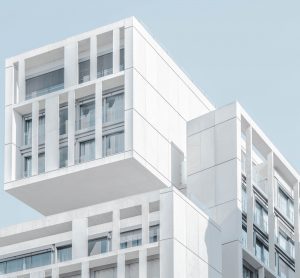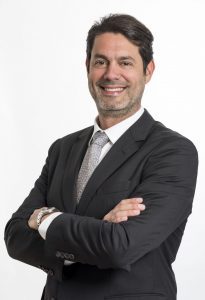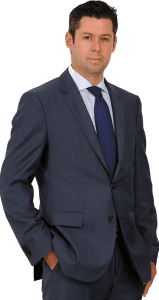By: Max Crampton Thomas

4 min read July 2020 — While the ongoing pandemic has been nothing short of a gut punch to what was set up to be another monumental year for economic growth, real estate development and investment has continued to adapt and move forward through a somewhat uncertain landscape. Invest: recently spoke with two Miami-Based leaders within these spaces. Real estate investor Jeronimo Hirschfeld, chairman, founder and CEO of One Real Estate Investment (OREI), and commercial real estate developer Bernardo Rieber, president and CEO of Rieber Developments, both spoke to the immediate effect and changes the pandemic has created for their projects and industry, as well as why they continue to believe in the Miami-Dade marketplace regardless of the roadblocks thrown up by COVID-19.

Bernardo Rieber
What advantages does the Miami marketplace offer to your business operations?
Bernardo Rieber: I think that Miami is one of the greatest cities in the world. I travel a lot, especially in recent years, and it is hard to find a city like Miami where everything works. It’s new, beautiful, with great weather most of the year. People are amazing, and the properties in general are still less expensive than in other major urban centers. The airport is one of the top in the nation and they have done a great job of expanding to meet the need. I think that Miami will continue to grow. Money will continue to be invested here.
In the commercial segment, I also see a strong market, for several reasons. In particular, more and more people are moving to South Florida. It might be because of low taxes, and the fact that it is becoming more of a global city, compared to 40 years ago when it was beaches and malls. Now, we are a culinary center, with new cultural centers, museums, a lot of great things happening. People move here from the East Coast, from South America and Europe. There are a lot of young professionals in areas such as Brickell. There is great demand for offices because a lot of international companies in the financial world are doing business here.
But there has also been a situation related to traffic, in which smaller municipalities, like Aventura, have been developing more commercial infrastructure to accommodate the people who live there and don’t want to commute into Downtown Miami. More offices are needed, and that’s fueled the market. In my particular case, as I am a developer of mostly medical spaces, I see Miami as a tremendous hub for medical tourism. I am right next to the Aventura Hospital and Medical Center, which is a level two trauma center, with 500 beds. I am finishing an extended stay hotel next door, and a total of 80,000 square feet of offices.

Jeronimo Hirschfeld
Jeronimo Hirschfeld: In today’s market, especially in the asset class that OREI operates in, which is multifamily, I believe there are going to be many opportunities here. In previous years, there were a lot of developers and investors deploying money into these investments, but as more uncertainty surrounding the real estate sector becomes apparent, opportunities begin to arise for firms like One Real Estate Investment. What we are seeing today is that these investors are now realizing that their strategy and their returns are not what they expected, so they are turning around and selling.
Multifamily assets are commonly tiered in A, B, C, and D categories based on the asset, location, and tenant base. In the market where I play, which is typically workforce housing in the B+ to C+ space, the assets tend to have a level of insulation from macro market drivers and economic factors. This is because when there’s a crisis and we see unemployment increase, many people begin to downsize to a living space that is more economically practical and feasible. So, when looking in multifamily real estate, you’ll see renters that were previously paying $4,000 in rent coming down to $3,000, and so on. Looking at the assets I invest in, the rents average between $750 and $1,200. These assets tend to perform in times of crisis because, as I mentioned, when people adjust their lifestyle, rent is usually a major expense that can be altered. As individuals who were once living in the Class A and B apartments begin to see a decrease in income, they will make the shift to a B or C class apartment. Ironically, I’ve seen the occupancy of my properties across the board tends to increase during a crisis between 1 to 2% because in addition to the individuals downsizing, many tenants who currently reside at our properties work blue collar jobs that aren’t drastically affected by a downturn. We feel very good about where we sit and what we are doing. Our competitive advantage is showcased through finding the right opportunity, taking advantage of the right deals and making sure we put the appropriate debt structure in place. Multifamily is an asset that sustains itself and performs very strongly during these times.
Where do you see the real estate market in Miami going over the next couple of years?
Rieber: We are mostly focused now on selling office condominiums in the medical sector, and there’s been a great response. We are sold out at our project Ivory 214 and we broke ground on our 12|12 Aventura mixed-use development in early 2020. We demolished the previous structure, prepared the land, started piling, and we are now about to start the foundations. We are on schedule to be up and running by the first quarter of 2022. Of course, since the COVID-19 situation began, we have had to adjust our sales process, but we continue to have interest in our offering and I expect to fully rebound.
Hirschfeld: In terms of neighborhoods, Wynwood is pretty hot, and you have nearby Allapattah, which is also a growing area with a lot of opportunities. It is still industrial, but as population and developments move up north, all these industrial neighborhoods will start changing into places where people are going to be living, playing and working. That’s what we saw with Wynwood. OREI is still very much in acquisition mode, as we are consistently sourcing new deals, while bringing in new equity groups and private investors who are interested in the multifamily space.
How has the fallout from the COVID-19 pandemic altered your developments at least for the near term?
Rieber: It’s been a shock from a business perspective. We are monitoring the situation daily. Of course, there have been ripple effects because Miami-Dade County’s building department closed, and you cannot call for inspections, which you need to continue building, and permits are delayed, but everyone is powering through and adjusting as best as possible during this unprecedented time. I truly believe that this short-term pain does not compare to the long-term potential of this community.
Hirschfeld: (With more people working from home in the future) there are a lot of things that we are implementing. We are implementing USB outlets in new projects, to make sure people can connect their devices directly. We are also implementing smart thermostats that you can control remotely through your phone, making it more efficient because you can set it up to emit minimal power every time you leave and to start cooling five, 10 minutes before you return to the apartment. In our Wynwood project, we have a large bike space at the street level.
To learn more about our interviewees, visit:
http://www.rieberdevelopments.com/
https://www.onerealestateinvestment.com/
